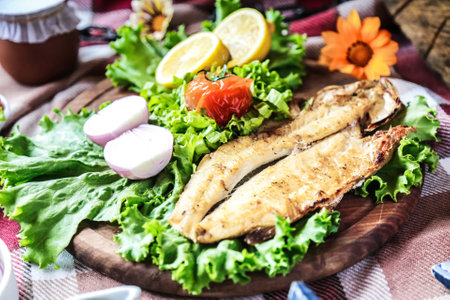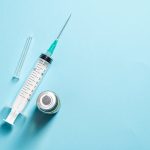Introduction to Fish Nutrition
When it comes to keeping fish healthy, nutrition is one of the most important factors. Just like people or pets, fish need a balanced diet to thrive. Proper nutrition not only helps fish grow and stay active, but also supports their immune systems, making them more resistant to disease. If fish don’t get the right nutrients, they can become weak, stressed, or sick.
Why Do Fish Need a Balanced Diet?
Fish are unique creatures with specific dietary needs. In the wild, they eat a variety of foods—like plants, insects, and smaller fish—that give them all the nutrients they need. In an aquarium or farm setting, it’s up to us to make sure their diet covers all the bases.
Key Nutrients for Fish Health
Here’s a simple table that breaks down the main nutrients fish need and why each one matters:
| Nutrient | Main Function in Fish | Common Sources |
|---|---|---|
| Protein | Builds muscles and tissues; supports growth | Fish meal, shrimp, soybeans |
| Fats (Lipids) | Provides energy; helps absorb vitamins | Fish oil, plant oils |
| Carbohydrates | Quick energy source (less important for some species) | Corn, wheat, rice bran |
| Vitamins | Supports immune system and overall health | Leafy greens, commercial vitamin mixes |
| Minerals | Keeps bones strong; helps nerves and muscles work properly | Calcium supplements, seaweed |
| Water | Essential for every body function; keeps cells hydrated | The water they swim in! |
The Big Picture: Why Nutrition Matters for Disease Prevention
A well-fed fish is much more likely to fight off infections and recover from injuries quickly. Poor nutrition can weaken their immune system and make them targets for common diseases. That’s why understanding what your fish need—and making sure they get it—is key to keeping them happy and healthy.
2. Core Components of a Balanced Diet
Understanding What Fish Need to Stay Healthy
Just like people, fish need a mix of nutrients in their diet to thrive and stay healthy. A balanced diet for fish supports strong growth, helps their bodies work properly, and boosts their ability to fight off diseases. Here’s a breakdown of the main nutrients every fish needs:
Proteins
Proteins are the building blocks for muscle and tissue growth in fish. They are especially important for young, growing fish and those that are recovering from illness or injury. Without enough protein, fish may grow slowly or show signs of weakness.
Fats
Fats give fish energy and support important body functions like hormone production and keeping their skin and scales healthy. Not all fats are created equal—fish need certain healthy fats called omega-3 fatty acids for best results.
Carbohydrates
Carbohydrates provide extra energy, but most fish don’t need a lot of them compared to proteins and fats. The right amount can help fuel daily activities, but too much can cause health problems.
Vitamins
Vitamins help with everything from bone health to vision and immune system strength. Some key vitamins for fish include Vitamin C (for healing), Vitamin D (for bones), and Vitamin E (for cell health).
Minerals
Minerals like calcium, phosphorus, magnesium, and potassium keep bones strong, help nerves work, and make sure muscles contract correctly. Trace minerals such as zinc and iron are also vital for overall health.
Nutrient Functions Table
| Nutrient | Main Role in Fish Health | Examples/Sources |
|---|---|---|
| Protein | Growth, tissue repair, immune function | Fish meal, shrimp meal, soy protein |
| Fat | Energy, hormone production, cell health | Fish oil, flaxseed oil |
| Carbohydrate | Energy source (limited amount) | Corn, wheat, rice bran |
| Vitamin (e.g., C, D, E) | Healing, bone strength, cell protection | Vegetables, supplements in feed |
| Mineral (e.g., Ca, P) | Bones/teeth strength, nerve/muscle function | Limestone powder, dicalcium phosphate |
If you’re responsible for feeding fish—whether at home or in an aquaculture setting—it’s helpful to check ingredient labels or talk with your feed supplier about these core components. Giving your fish the right balance keeps them active, colorful, and more resistant to common illnesses.
![]()
3. Impact of Diet on Fish Immune Systems
Just like humans, fish rely on their immune systems to fight off disease and recover from stressful situations. A balanced diet provides the essential nutrients that support the immune response in fish, making them less likely to get sick and better able to bounce back after challenges such as changes in water temperature or handling.
How Nutrition Supports Fish Immunity
The immune system in fish is made up of different parts that all work together—cells, tissues, and organs. When fish receive the right balance of proteins, vitamins, minerals, and fats, each part of this system can function at its best. For example, vitamin C and vitamin E help protect cells from damage, while certain amino acids (the building blocks of protein) are needed for producing important immune cells.
Key Nutrients for Fish Immune Health
| Nutrient | Main Function | Sources |
|---|---|---|
| Protein (Amino Acids) | Builds immune cells and antibodies | Fish meal, soybean meal, insects |
| Vitamin C | Boosts white blood cell activity; antioxidant protection | Citrus fruits, formulated feeds |
| Vitamin E | Protects cell membranes; antioxidant effects | Plant oils, green vegetables in feed |
| Zinc & Selenium | Aids enzyme function in immunity | Mineral supplements, animal proteins |
| Omega-3 Fatty Acids | Reduces inflammation; improves recovery from stress | Fish oil, flaxseed meal |
Signs of a Strong Immune System in Fish
- Active swimming and natural behavior
- Bright coloration and healthy skin/scales
- Quick recovery after minor injuries or environmental stressors
- Lower incidence of common diseases in the tank or pond
If fish aren’t getting a well-rounded diet, their immune systems can weaken. This means they might catch infections more easily or take longer to heal from wounds and stress. On the other hand, when their nutritional needs are met every day, fish are much more resilient—and that’s exactly what you want if you’re looking to keep your aquarium or pond healthy.
4. Common Nutritional Deficiencies and Their Effects
What Happens When Fish Don’t Get the Right Nutrition?
When fish don’t receive a balanced diet, it can have serious effects on their overall health. Just like people, fish need a mix of proteins, fats, vitamins, and minerals to grow well and stay strong. If any of these nutrients are missing or in short supply, fish can develop visible problems and become more likely to get sick.
Signs of Nutritional Deficiencies in Fish
Spotting nutritional deficiencies early can make a big difference in your fish’s health. Here are some common signs to look out for:
| Nutrient Lacking | Common Signs |
|---|---|
| Protein | Poor growth, muscle wasting, low energy |
| Vitamins (like Vitamin C) | Curved spine, weak immune system, skin sores |
| Fats (essential fatty acids) | Frayed fins, color fading, trouble reproducing |
| Minerals (like calcium or phosphorus) | Bone deformities, slow growth, weak skeleton |
Long-Term Impacts on Health and Disease Resistance
If these deficiencies continue over time, the problems only get worse. Fish that don’t get enough nutrients may have stunted growth and struggle to reach maturity. They’re also much more likely to catch diseases because their immune systems are weaker. Chronic nutritional problems can even lead to higher death rates in a tank or pond.
The Link Between Diet and Disease Vulnerability
A poor diet doesn’t just affect how a fish looks—it affects how well it can fight off infections. Without proper nutrition, wounds heal slowly and common illnesses like fin rot or bacterial infections become bigger threats. This is why keeping an eye on what your fish eat is so important for disease prevention.
5. Role of Diet in Disease Prevention
Just like people, fish need a well-balanced diet to stay healthy and fight off sickness. When fish get the right mix of nutrients, their bodies are better equipped to resist infections and recover from stress. Whether in the wild or on a farm, a balanced diet plays a big part in preventing common diseases that can hurt fish populations.
How a Balanced Diet Supports Fish Health
A good diet gives fish the energy and nutrients needed for strong immune systems. Here are some specific ways that nutrition helps prevent disease:
- Boosting Immunity: Vitamins like C and E, along with minerals such as zinc and selenium, help strengthen fish immune responses.
- Supporting Skin and Scales: Healthy skin and scales act as barriers against bacteria and parasites. Enough protein and omega-3 fatty acids keep these defenses strong.
- Reducing Stress: Poor diets make fish more stressed, which can lower resistance to illness. A balanced diet helps fish cope better with changes in their environment.
Examples from Wild vs. Farmed Fish
| Fish Type | Common Diseases | Diet Impact | Example |
|---|---|---|---|
| Wild Salmon | Fungal & Bacterial Infections | Diverse natural diet gives them antioxidants and essential fats to fight off infections. | Salmon with access to varied prey show fewer fungal outbreaks compared to those in poor feeding areas. |
| Farmed Tilapia | Bacterial gill disease Parasitic infestations |
Balanced pellets with vitamins reduce disease outbreaks compared to low-quality feed. | Tilapia farms using vitamin-rich feed see less gill disease than those cutting corners on nutrition. |
| Wild Carp | Sores from parasites | Nutrient-rich habitats mean stronger skin, making it harder for parasites to take hold. | Carp in polluted waters with less food often suffer more skin sores. |
| Farmed Trout | Mouth rot (columnaris) | Diets high in protein and vitamin C help prevent mouth lesions and speed up healing. | Trout fed with added vitamin C have lower rates of mouth rot during stressful times. |
Nutritional Elements That Matter Most
- Proteins: Help repair tissues and build defenses against pathogens.
- Lipids (fats): Provide energy and support healthy skin and scales.
- Vitamins (A, C, D, E): Strengthen immunity and overall health.
- Minerals (zinc, iron, selenium): Aid in metabolic processes that protect against disease.
A Simple Takeaway for Fish Owners and Farmers
No matter if you’re caring for backyard koi or managing a large trout farm, paying attention to what your fish eat is one of the best ways to keep them thriving. Even small improvements in diet can make a noticeable difference when it comes to preventing disease outbreaks.
6. Practical Tips for Providing a Balanced Diet
Why a Balanced Diet Matters for Fish Health
Giving your fish a well-rounded diet is more than just feeding them daily—its about supporting their immune system, growth, and overall well-being. Whether you’re keeping an aquarium at home or managing a commercial fish farm, healthy fish are less likely to get sick and can thrive in their environment. Here’s how you can make sure your fish are getting what they need.
Choosing the Right Food Types
Different species have different dietary needs. Some are herbivores, others are carnivores, and many are omnivores. It’s important to pick foods that match the natural diet of your fish. Here’s a simple reference:
| Fish Type | Main Foods | Recommended Forms |
|---|---|---|
| Herbivores | Algae, plant matter, vegetables | Spirulina flakes, blanched spinach, peas |
| Carnivores | Protein-rich foods (insects, small fish) | Frozen shrimp, bloodworms, pellets with high protein |
| Omnivores | Mix of plants and animal protein | Quality flakes/pellets, occasional live/frozen food |
Tips for Preparing and Supplementing Fish Diets
- Rotate Food Types: Avoid giving the same food every day. Mix it up with pellets, flakes, frozen, or live food to provide variety and balance.
- Add Fresh Veggies: Many freshwater fish enjoy peas (with shells removed), zucchini slices, or spinach. Blanch these veggies before feeding for easier digestion.
- Use Supplements Wisely: Sometimes commercial diets miss certain vitamins or minerals. Products like vitamin drops or spirulina powder can help fill those gaps—but always follow dosing instructions.
- Avoid Overfeeding: Feed only as much as your fish will eat in 2–3 minutes to prevent water quality issues and obesity.
- Observe Your Fish: Healthy fish are active and have bright colors. If you notice changes in behavior or appearance, re-evaluate their diet first.
Example Feeding Schedule for Hobbyists
| Day | Main Food | Treat/Supplement |
|---|---|---|
| Monday | Quality pellet/flake food | – |
| Tuesday | Pellet/flake food | Bite-sized blanched veggies (e.g., peas) |
| Wednesday | Pallet/flake food | Frozen/live protein (e.g., brine shrimp) |
| Thursday | Pallet/flake food | – |
| Friday | Pallet/flake food mixed with spirulina powder | – |
| Saturday & Sunday | Pallet/flake food (smaller amounts) | Treats only if needed; observe fasting one day per week for digestive health if appropriate for species. |
Sourcing Quality Ingredients Matters Too!
If youre preparing homemade food or choosing commercial options, look for brands with clear labeling and avoid fillers like excessive wheat or corn. For homemade recipes, use fresh ingredients and freeze portions for convenience.
The Takeaway: Consistency is Key!
A consistent routine using diverse and high-quality foods will help keep your fish strong and resistant to disease. Stay observant—your fish will show you what works best with their energy levels, appetite, and coloration.
7. Conclusion and Future Considerations
Keeping fish healthy is not just about clean water or the right tank size—it starts with what they eat every day. A balanced diet gives fish the nutrients they need to grow, fight off disease, and thrive. From proteins and vitamins to essential minerals, every piece of their diet plays a role in building strong bodies and resilient immune systems.
Key Points to Remember
| Nutrient | Main Benefit for Fish | Common Sources |
|---|---|---|
| Protein | Growth & tissue repair | Fish meal, shrimp, insects |
| Fats | Energy & cell health | Fish oils, plant oils |
| Vitamins | Disease resistance & metabolism | Vegetables, supplements |
| Minerals | Bone strength & nerve function | Algae, commercial feeds |
| Fiber | Digestive health | Plant matter, grains |
The Ongoing Importance of Diet Review and Adaptation
The science around fish nutrition keeps growing. New research can reveal better ways to feed our fish, improve their well-being, and even prevent disease outbreaks. That’s why it’s important for fish owners—whether you’re a backyard hobbyist or a commercial farmer—to keep an open mind and be willing to adapt your feeding practices as new information comes out.
Tips for Staying Up-to-Date:
- Read trusted sources: Check updates from universities, aquaculture associations, or fish vet groups.
- Watch your fish closely: Notice any changes in behavior, appetite, or appearance when trying new foods.
- Talk to other fish keepers: Sharing experiences can help you learn what works best in real life.
- Be flexible: Don’t be afraid to change your routine if you find something that benefits your fish’s health.
Your Role as a Fish Caretaker
Your effort to review and adjust your fishes’ diet makes a big difference—not just for their growth but for their lifelong health. As our knowledge grows, so should our care routines. Stay curious, stay informed, and give your aquatic friends the best chance at a happy, healthy life.


